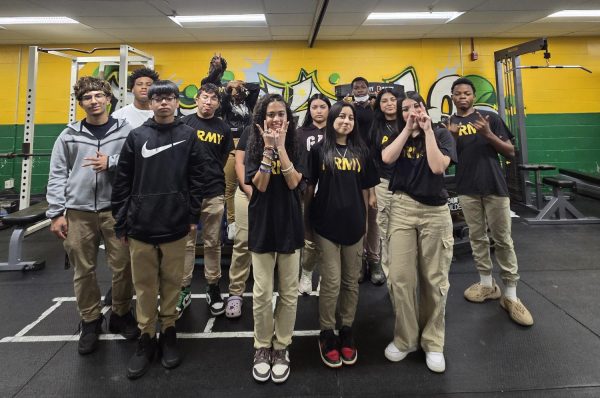Senioritis… Is it real?

As the school year is coming to an end, seniors are coming closer and closer to graduation; as a result, they are more prone to senioritis.
Senioritis is known to be “an ebbing of motivation and effort by school seniors as evidenced by tardiness, absences, and lower grades” according to the Merriam Webster Dictionary. This ‘condition’ is a lack of motivation which students feel as they are reaching the end of their courses. Senioritis typically affect second semester seniors.
The condition is typically viewed as a joke, but many (including myself) seem to think that it is an actual phenomenon. “[Freshmen], sophomores, and juniors do not even suspect themselves as being vulnerable to senioritis,” according to a study conducted by Shaunak Patel of the Steinhardt school of NYU.
Some symptoms of the ‘condition’ include:
- Incompletion of assignments
- Low energy
- Poor (or decrease in) personal hygiene
- Excessive daydreaming
- Lack of ability to concentrate
- Lack of interest in getting out of bed
- Lack of concern for upcoming exams
- Procrastination (a common symptom)
- A drop in grades
- Loss of interest in studies
- Skipping school/class
- “Turning in work that is subpar”
- Sloppy, out-of-character fashion choices
There are many symptoms of senioritis, but what typically causes this humorous ‘illness’?
Causes of senioritis include:
- Achievement: Top students are more subjected to achieving senioritis; when having achieved so much in such a short time period four years (whether it be top grades, or an abundance in extracurricular activities), you may be burned out.
- End-goal mindset: When students tend to get into the college that they desire (which tends to be a long-term goal), they may feel that they are done with everything and that is all they need to do.
- Boredom: Learning for 14 years can get tiring and traditional methods of education can get boring.
- Denial/fear: Seniors are starting to realize that they are not kids anymore. Students are entering the unknown of adulthood and want to give up in order to regain control.
- Anticipation: Students may give up during the end of high school, because they are too busy thinking and being excited for their future; they may believe that college may pave the way for them to have more freedom and forget to remember that they are still in high school.
The condition typically affects students when they know they are going to pass a class; and those that have lost all motivation may not care if they pass class with an E or an A.
Seniors particularly at Parkdale seem to be experiencing this ‘illness’ as well.
“I believe senioritis is real,” said Parkdale senior Jennifer Mercado. “We’ve been killing it for three and some years and at this point we just want to be done, we lack motivation and we want to do other things instead of school work especially now that we are young adults.”
Seniors may think that they can slack off because the school year is almost over and they have already been accepted into college, but they could be harming themselves more than they think they are.
“[Decisions] to slack off on studies and attendance can impact learning, affect grades, and make it more difficult to make the transition from high school to college,” says Shaunak Patel of the Steinhardt school of NYU.
As there are many detrimental effects, there are many ways to prevent/end senioritis.
The cure to senioritis is motivation.
Those facing senioritis should “[keep] a positive attitude through the end and keep reminding yourself of your end goal,” says academic advisor Abby Tincher of Southern New Hampshire University (SNHU).
If those facing senioritis want help, you can share your feelings with someone that can provide help/resources/ideas. For example:
- Academic advisor
- Guidance counselor
- Career advisor
Some tips to help overcome senioritis include:
- Setting goals to keep you motivated
- Rewarding yourself
- Getting yourself organized and on schedule
- Surrounding yourself with support
- Changing things up
- Taking a break
- Remembering what you’re working toward
“There is really no way to stop [senioritis],” says Mercado. “Just get up and push yourself to finish the race. Make it to the finish line, Be disciplined and push through it.”
Your donation will support the student journalists of Parkdale High School. Your contribution will allow us to cover our annual website hosting costs and publish some printed editions, as well.
Destiny Chukwukere is a senior at Parkdale High School. She recently joined the PHS Paw Print during this 2021-2022 school year. She is a clever but funny...






